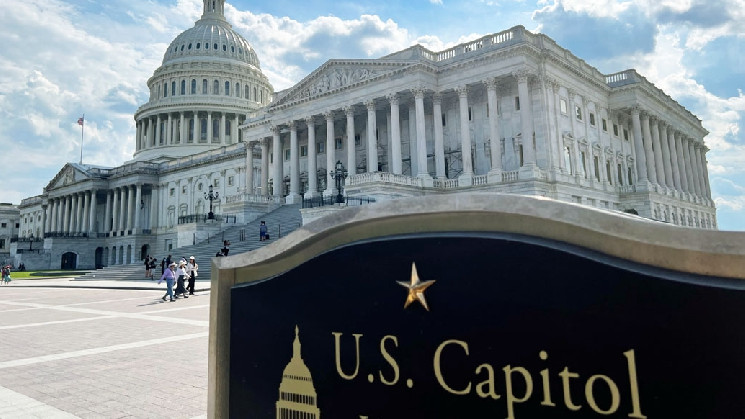The U.S. House vote goes 279-136 to approve the Financial Innovation and Technology for the 21st Century Act with a very strong showing from House Democrats.
The passage of the crypto market-structure bill marks the industry's most significant legislative accomplishment in Congress.
The crypto industry recorded its biggest-ever U.S. policy win on Wednesday when the House of Representatives approved a wide-reaching bill to establish regulations for digital assets markets, recording a 279-136 vote that saw Democrats crossing party lines to support it.
The Financial Innovation and Technology for the 21st Century Act (FIT21) marks the first time a major crypto bill has cleared one of the chambers of Congress. The issue now heads to the U.S. Senate, where its future is much murkier, because there's no counterpart bill. Support for such an effort remains unclear there, and the necessary committees haven't done the same level of work on crypto.
The U.S. has fallen behind other global jurisdictions in establishing crypto regulations, and despite the win on Wednesday, implementing such oversight is far from complete.
"We need rules of the road," said Rep. Josh Gottheimer (D-N.J.), one of the Democrats who bucked the opposition of the White House and the ranking Democrat on the House Financial Services Committee, Rep. Maxine Waters (D-Calif.). He called it "well-reasoned, thoughtful, bipartisan legislation" and argued before the vote that "it's fit to become law if we work together."
Overall, 71 Democrats and 208 Republicans voted in favor of the bill, versus 3 Republicans and 133 Democrats who voted against.
President Joe Biden opposed the bill with a policy statement, though he didn't say he'd veto the bill, as he had recently when Congress sought to overturn a Securities and Exchange Commission (SEC) effort to set crypto accounting policy. SEC Chair Gary Gensler also came out strongly against the legislation in a lengthy public statement arguing the bill wasn't needed and endangered existing securities regulations.
The legislation – largely driven by House Republicans – would establish a regime to regulate the U.S. crypto markets, setting consumer protections, installing the Commodity Futures Trading Commission (CFTC) as a leading regulator of digital assets and the watchdog of the non-securities spot markets and it would more clearly define what makes a crypto token a security or a commodity.
Waters argued that the bill is seeking to let the crypto businesses who have been dodging securities laws avoid responsibility.
"They have already made billions of dollars unlawfully issuing or facilitating the buying and selling of crypto securities," Waters said. "And Republicans are now proposing to reward these illegal activities by making these activities legal."
Prior to Wednesday afternoon's vote, the House debated a handful of amendments to the bill, including by Reps. Greg Casar (D-Texas), Brittany Pettersen (D-Co.), Ralph Norman (R-S.C.) and Scott Perry (R-Pa.). Casar's amendment to change a crowdfunding exemption from $75 million to $5 million was defeated, but the rest were adopted.
 coindesk.com
coindesk.com
